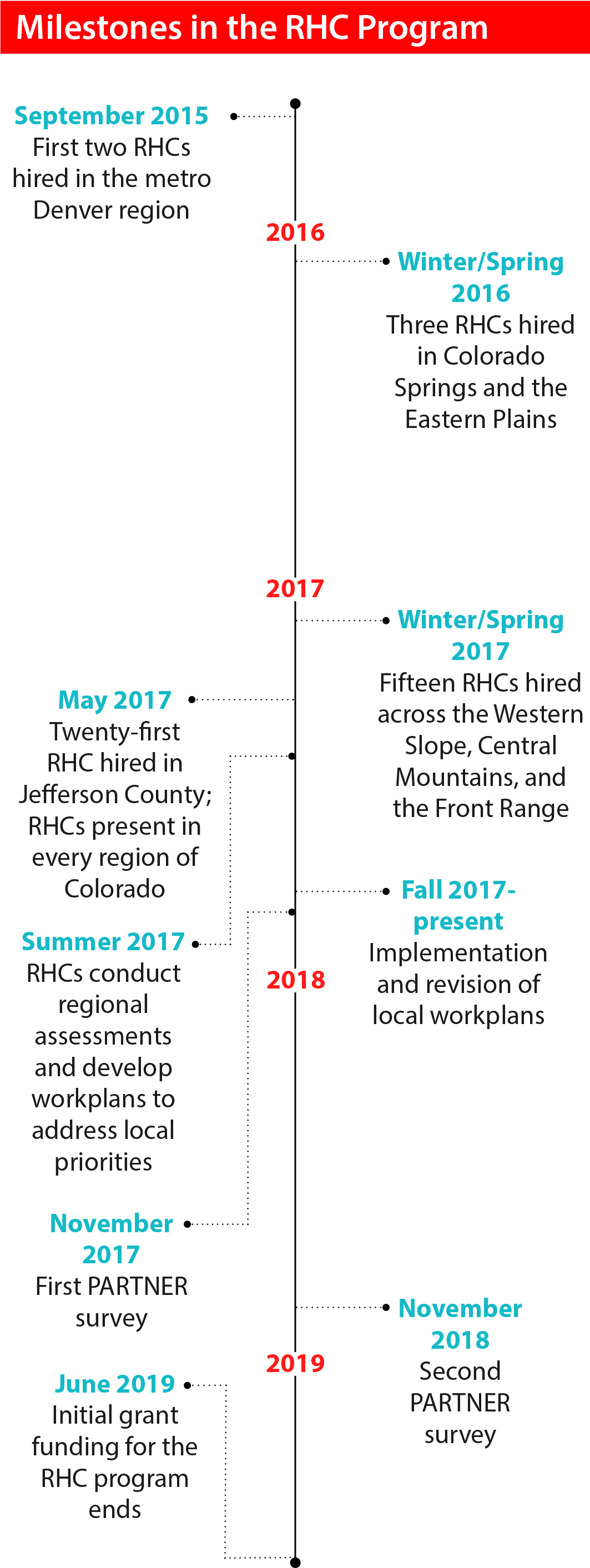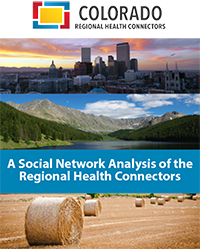
Building Partnerships: The Regional Health Connectors’ Impact on Colorado
RHCs do this by connecting primary care providers and local partners to promote health both within and outside of traditional medical settings of care.
Networks are a key piece of this work. RHCs develop and strengthen networks of partner organizations that include providers, government agencies, community-based groups, and others working to improve the health of Coloradans.
These networks not only strengthen the connections between providers and local partners, but are leveraged to coordinate activities to reduce gaps in the health system and integrate clinical and community-based strategies to address local health priorities.
Because the success of RHCs is intimately tied to the success of these networks, the RHC program regularly evaluates network strengths and areas for improvement. Methods from the field of social network analysis are used to understand how the partner organizations within RHC networks work with both the RHCs and one another.
This analytic approach was first applied to the RHC program in 2017. It was repeated in 2018 to understand how RHC networks continue to grow and evolve. This report from the Colorado Health Institute (CHI) outlines findings from this analysis. CHI and Trailhead Institute co-developed the RHC program, with funding from the Colorado State Innovation Model and EvidenceNOW Southwest.
Survey responses from nearly 500 organizational partners provide insights into the complexity of networks across the state, the role played by RHCs in developing these networks, and what has changed since 2017. The survey found that:
Partner organizations valued the contributions of other organizations within their RHC networks more in 2018 than they did in 2017.
As the RHC program has matured, organizations report finding greater value in their partners’ power and influence, level of involvement, and resource contribution. As in 2017, partners reported higher levels of trust and value in relationships that the RHCs had helped to create or strengthen.
The work of RHCs and partner organizations within their networks is becoming more intertwined.
In 2018, 97 percent of partner organizations reported that they were involved in RHC work, and 88 percent reported that RHCs were involved in the work of their organization or department. This is up from the 2017 rates of 93 percent and 82 percent, respectively.
Most partner organizations strongly value the presence of an RHC in their region.
More than 300 partner organizations (75 percent) said their region needs an RHC. When asked specifically about the value of RHCs in their region, partner organizations emphasized the increased knowledge and access to resources that RHCs provide. They also cited improvements in cross-sector communication — of the nearly 3,000 connections that partner organizations say were created or deepened by the RHCs, most (65 percent) crossed sectors.
The survey suggests that RHCs play a valued role in the work of partner organizations within their networks and have facilitated cross-sector relationships in their regions. This report offers a deeper dive into these and other findings that are key to understanding the RHC networks.

Download the PDF at the top right of this page for the full report.



